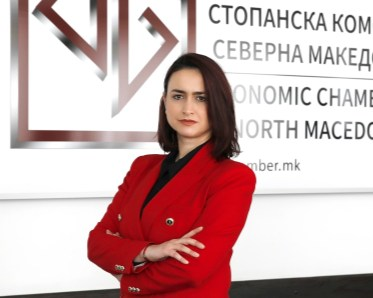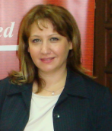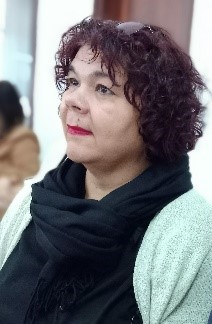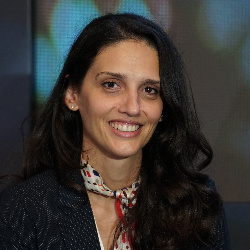- Private Sector Regional Integration Support Activity
- Citizens Against Corruption (CAC)
- Е4Е@MK
- EEN
- EU project – Sustainable EnErgy Skills in construction: Visible, Validated, Valuable (SEEtheSkills)
- DIG-IN-KPI
- Project:G.EM.S
- Project:"Gazelle"
- Project:FITR
- Project: TRAINEE
- Project: InComSMEs
- USAID-Partnership for Better Business Regulations
- Closed projects
Private Sector Regional Integration Support Activity

Project title: “Private Sector Regional Integration Support Activity”
Duration of the Project: June 30, 2022 – June 29, 2025
Project coordinator and implementer: Economic Chamber of North Macedonia
Donor: United States Agency for International Development – USAID
Strengthening the export capacities and competitiveness of export oriented companies needs support which will be provided through: Intensification of regional business cooperation and easing of trade barriers in order to take advantage of the opportunities for the Macedonian business community from the Common Regional Market (CRM) and internationalization of the Macedonian business sector. The main goal of the Project is to contribute for strengthening the competitiveness of the economy of North Macedonia, enabling local companies to connect more easily in regional trade flows, strengthening their capacities to deal with competitors’ pressure and market forces both in the region and in the EU.
The project consists of two main objectives:
1.Objective: Improve regional and international business cooperation of the Macedonian companies with the Western Balkans and EU markets.
To achieve the first objective, two activities are defined:
- Boosting the regional and international business cooperation and investments;
- Creating tools for public private dialog and promoting the benefits of the regional economic integration to Macedonian business community.
2. Objective:: Increase the competitiveness of export orientated companies and their integration to regional and global value chains.
To achieve the second objective, four activities are defined:
- Preparation of market analysis for exploring export opportunities of Macedonian economy;
- Support for internationalization and integration in the regional and global value chains of Macedonian companies;
- Export promotion and visibility of Macedonian companies;
- Developing Institute for Export and capacity building of the Chamber for development of new services for support of export companies.
Citizens Against Corruption (CAC)
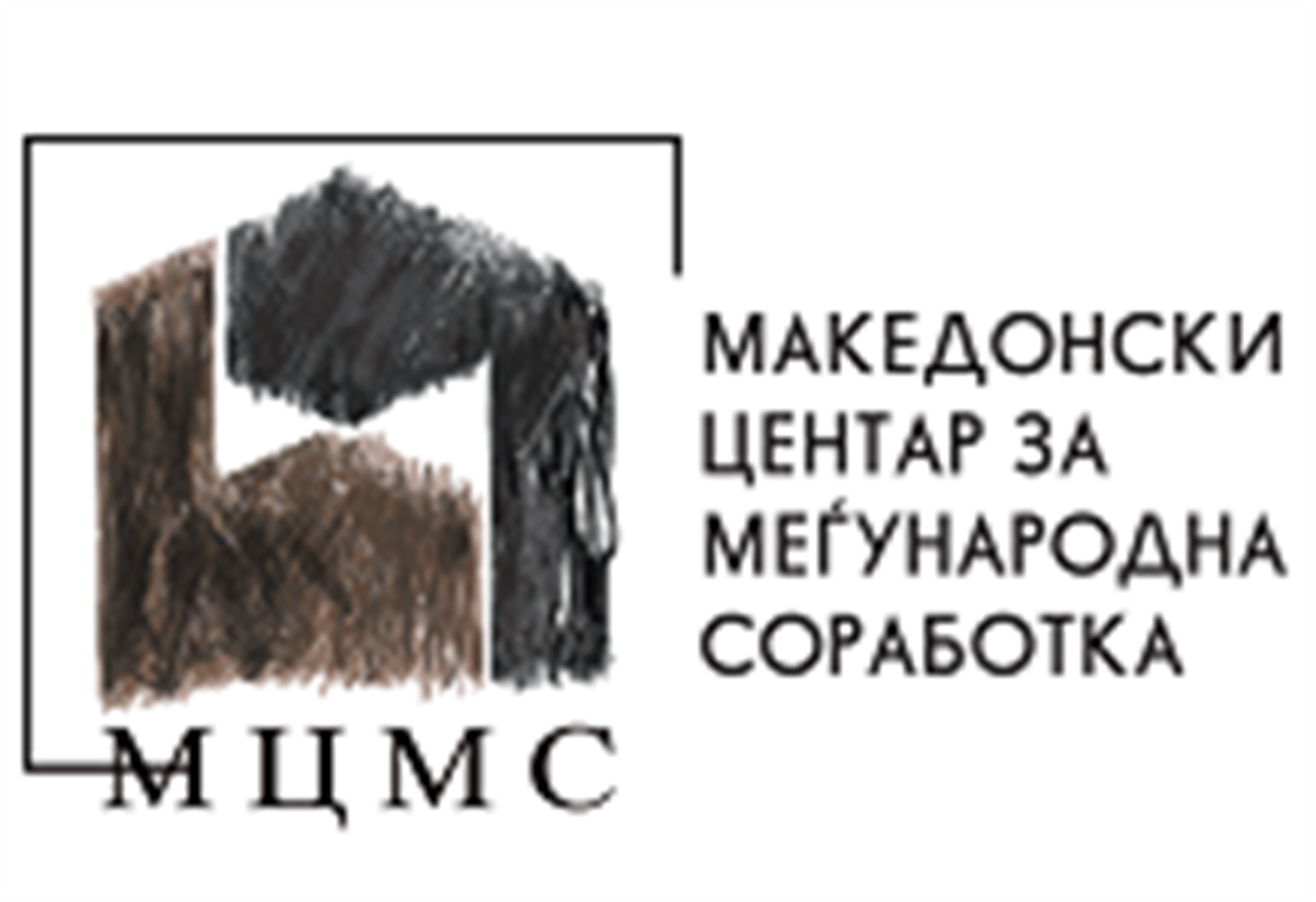
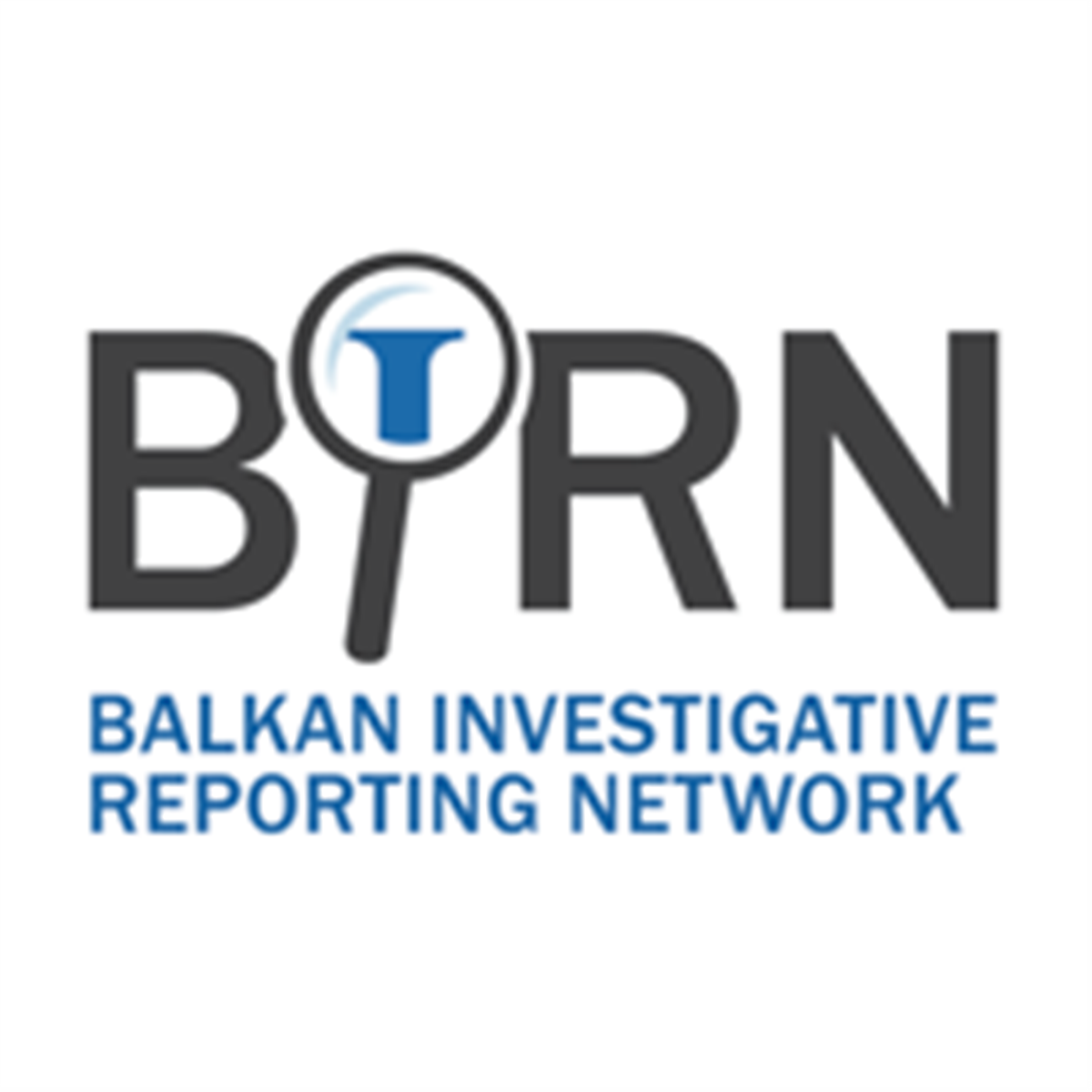
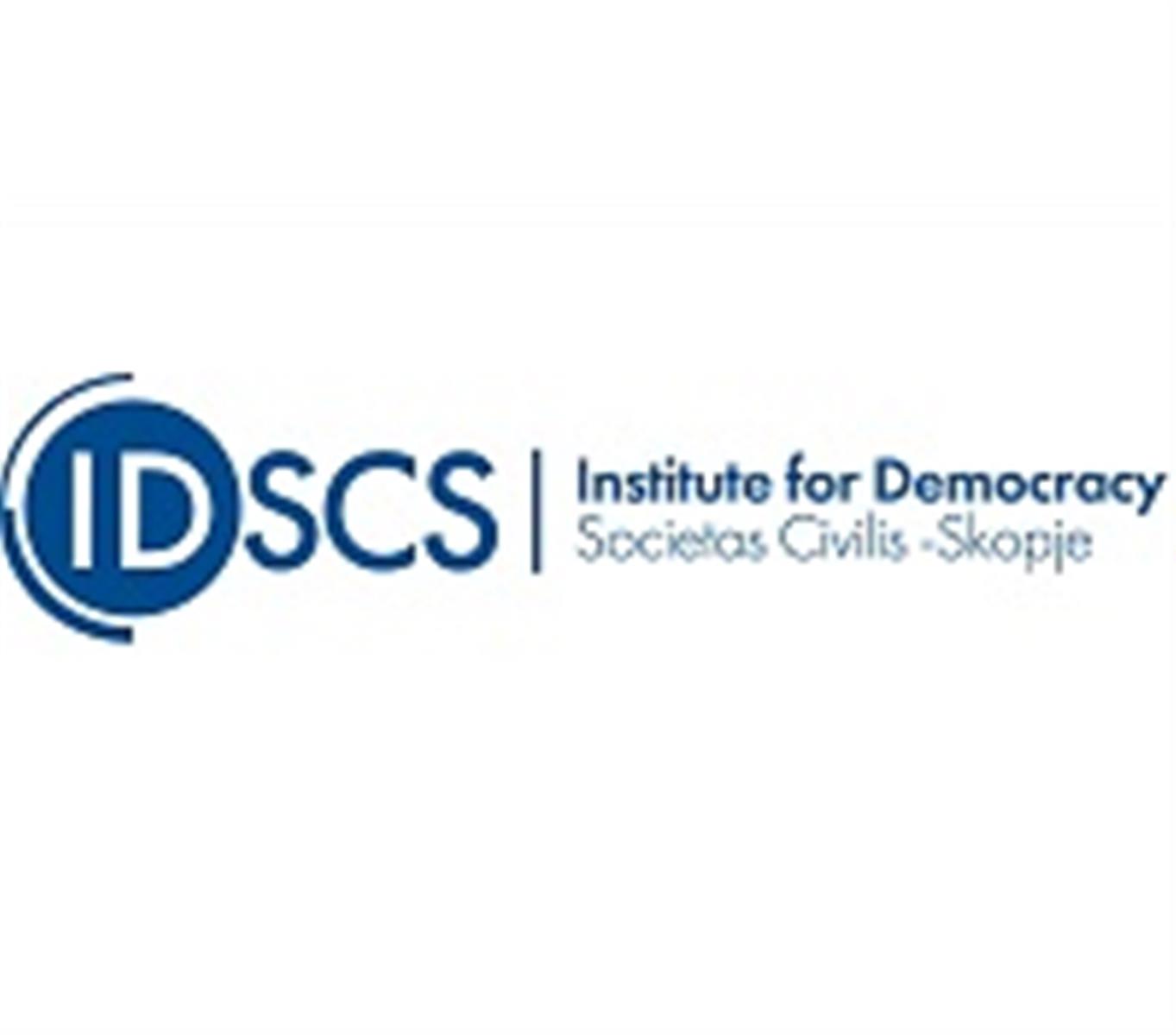
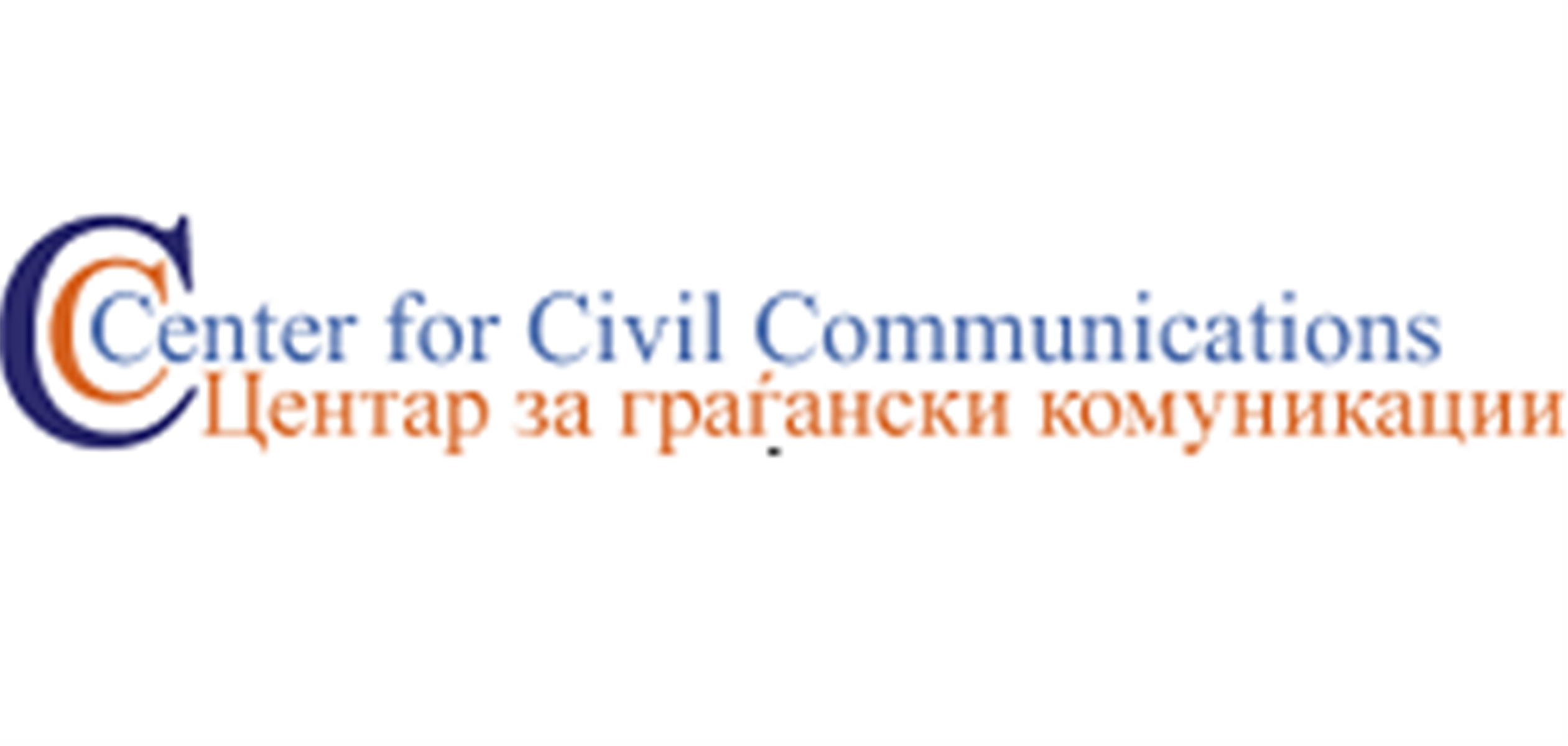
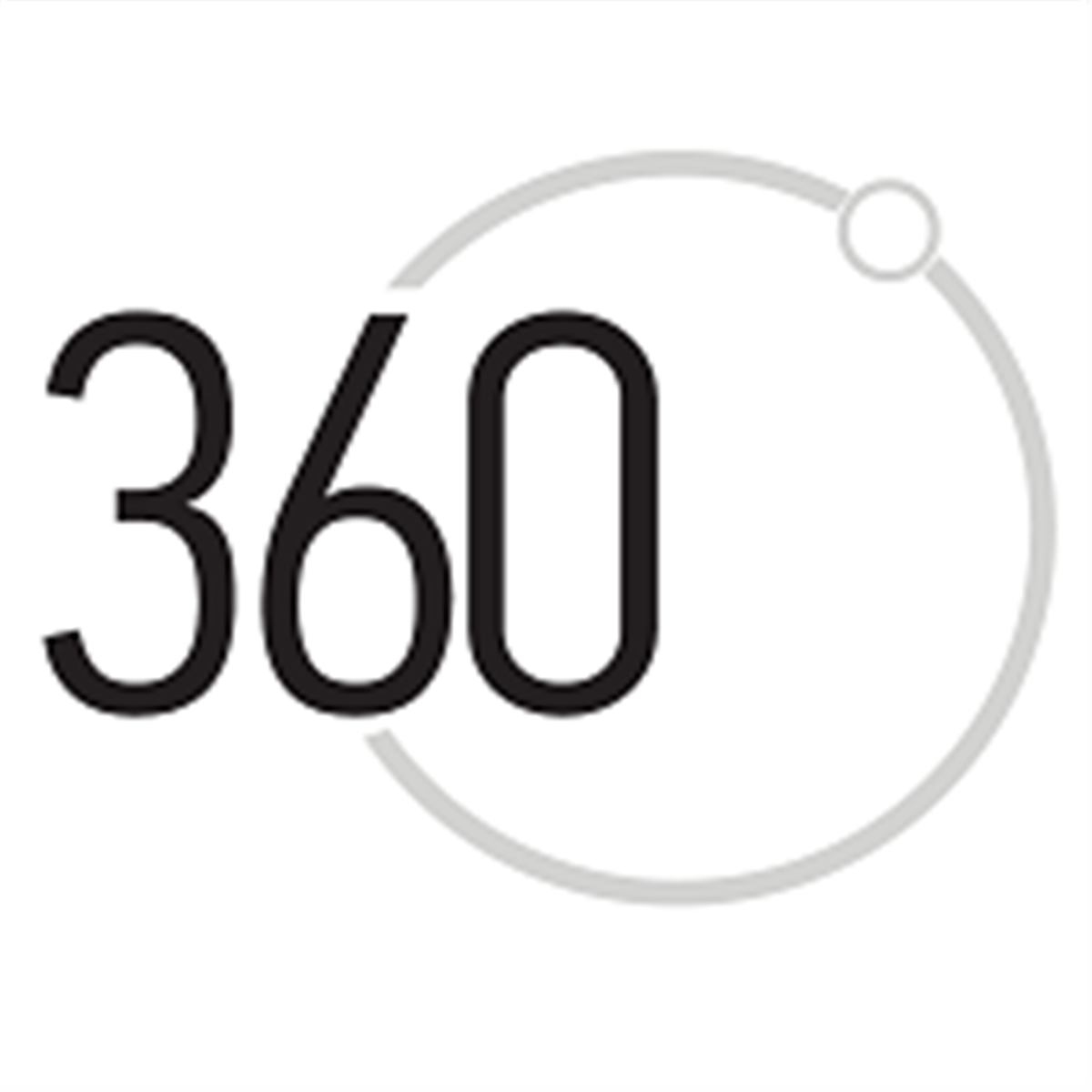
Project title: Citizens Against Corruption (CAC)
Project duration: 03/04/2023-02/04/2028
Project coordinator and implementer: Economic Chamber of North Macedonia (ECNM) is part of the Citizens Against Corruption program led by the Macedonian Center for International Cooperation (MCIC). Apart from the ECNM, other program partners include the Center for Civil Communications (CCC), the Institute for Democracy ‘Societas Civilis’ – Skopje (IDSCS), 360 Degrees, Investigative Reporting Lab Macedonia (IRL), and the Balkan Investigative Reporting Network, Macedonia (BIRN).
Donor: The program is funded by the United States Agency for International Development (USAID).
The general aim of the program is to increase the involvement and collaboration of citizens, civil society, media, and the private sector in the fight against corruption, which will lead to improved responses from state institutions and effectiveness in addressing corruption in all sectors at the national and local levels.
The Chamber is involved in promoting a culture of integrity and corporate responsibility in the private sector and will advocate for greater engagement between public institutions and the private sector in implementing the national and international anti-corruption regulatory framework.
The entire program approach is based on a comprehensive awareness-raising action that unites civil society, media, and the private sector. The program's approach includes:
- Evidence-based advocacy
- Campaigns for reforms
- Collective citizen action against corruption
- Financial support and mentoring
- Media coverage of corruption
- Private sector engagement in strengthening integrity.
The program will be implemented through several activities organized into the following components:
Component 1: Enhanced knowledge and awareness of citizens in the fight against corruption and the promotion of good governance and accountability.
Component 2: Civil society actively participates in the fight against corruption.
Component 3: The media actively contributes to uncovering and addressing corruption.
Component 4: The private sector is involved in the fight against corruption.
E4E@MK
under construction
Enterprise Europe Network - EEN
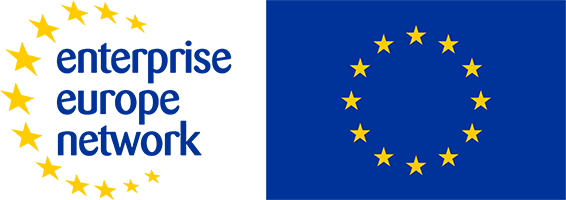
Enterprise Europe Network North Macedonia – EENOMA
The EENOMA project offers tools and services designed to stimulate growth, enhance export capacity, foster innovation, and improve the competitiveness of Macedonian small and medium-sized enterprises (SMEs). This is achieved through integration into the world’s largest business support network – the Enterprise Europe Network (EEN). Through EENOMA, companies gain access to resources, expertise, and partnerships that ease their path to European and global markets.
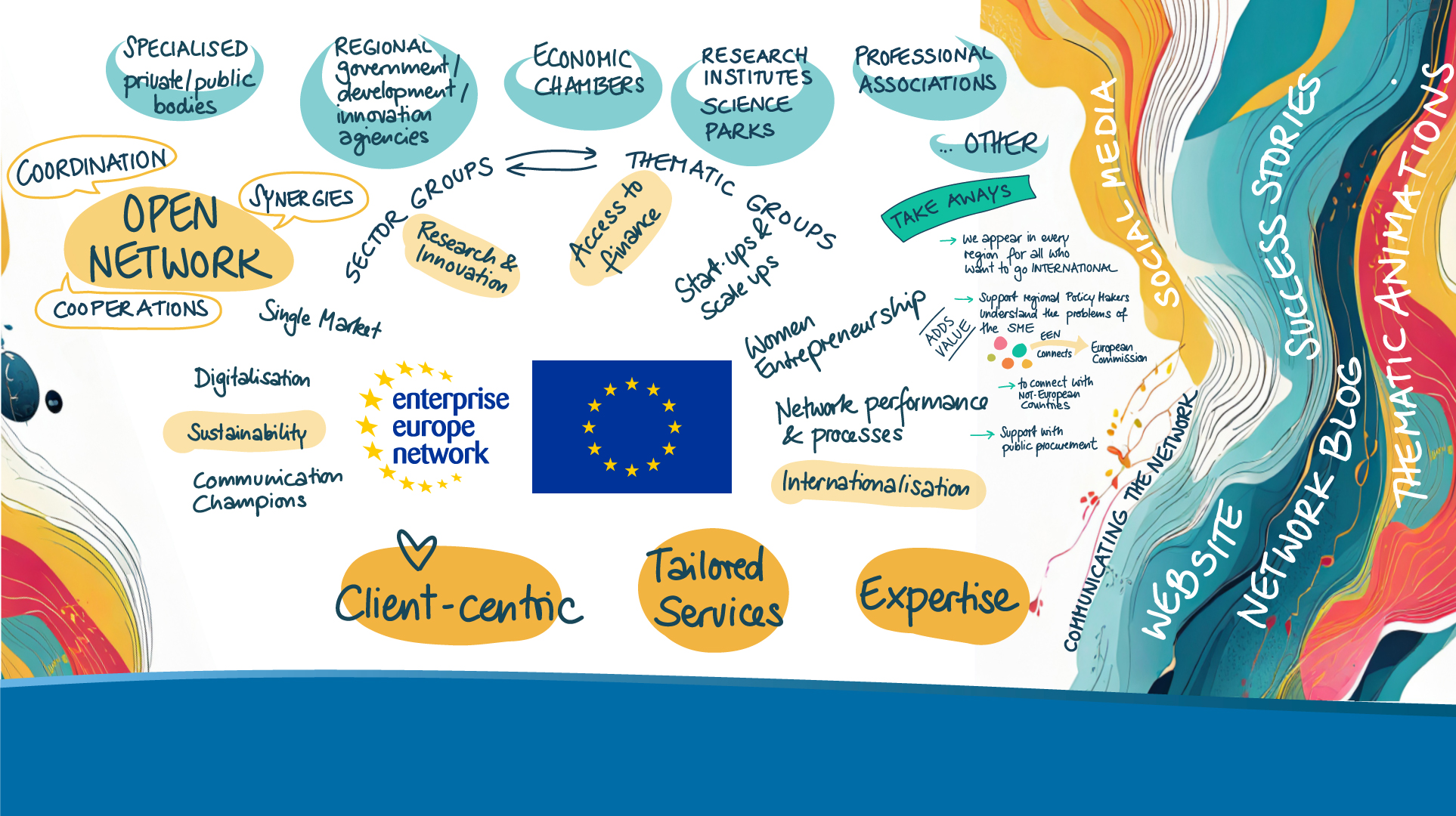
⮞ What Is the Enterprise Europe Network?
The Enterprise Europe Network (EEN) is an initiative of the European Commission, launched in 2008. Today, it represents the largest global business support network for SMEs. It operates in over 60 countries, including the USA, Japan, Russia, China, North Africa, the Middle East, and the Western Balkans.
The network includes:
· 600+ partner organizations, including chambers of commerce, universities, research centers, and development agencies
· 3,000+ experts providing professional advice across all key economic sectors—ranging from agriculture, metal and electrical industries, and construction to smart energy, tourism, and textiles—with additional support in accessing finance and grants
· 250,000+ companies annually receive support through the network
· 52,000+ SMEs each year benefit from expert guidance aimed at enhancing their innovation, growth, and internationalization
· 20,000+ companies annually participate in international events, forums, and matchmaking meetings through the network
Supported by the Single Market Programme (SMP), EEN focuses on helping SMEs integrate into European and global markets by boosting competitiveness and sustainability. It provides business support to identify potential partners and explore new collaboration opportunities across the EU and beyond.
This initiative is key to transforming Macedonian companies into globally competitive, innovative, and resilient business entities.
⮞ What Does EENOMA Offer Macedonian Companies?
EENOMA provides a wide range of free of charge services and activities tailored to the needs of Macedonian SMEs:
✪ Internationalization and Growth
· Connecting with foreign partners through business profiles (supply/demand)
· Participation in international trade fairs, conferences, and brokerage events
· Support for export and market entry strategies
· Advice on developing and applying new technologies
· Support for knowledge transfer and technical cooperation
· Access to research and development programs
✪ Information and Legal Services
· Guidance on EU regulations and standards
· Assistance with EU compliance and legal harmonization
· Support in applying for grants and financial instruments
· Local, regional, and international business meetings
· Panel discussions, trainings, and seminars (in-person and online)
· Facilitating company visits and providing individual support
⮞ Direct Benefits for Macedonian Companies
· Access to international business opportunities
· Increased visibility and competitiveness in the European market
· Support for technological transformation and sustainable growth
· Connections with agents, distributors, investors, and franchise partners
· Development of new products with added value
⮞ Partner Consortium
Economic Chamber of North Macedonia operates the Enterprise Europe Network (EEN) project in collaboration with two partner organizations: The University "St. Cyril and Methodius", Skopje (offering academic and research support) and the Foundation for Management and Industrial Research (MIR Foundation), Skopje (providing expertise in innovation and development). Together, they form the Enterprise Europe Network North Macedonia - EENOMA consortium.
Together, they provide business and advisory services, as well as access to essential information and tools that help Macedonian companies improve their competitiveness and innovation capacity.
📌 Contact and Additional Information
For more details, visit the national EENOMA platform www.een.mk, or the global Enterprise Europe Network website een.ec.europa.eu.
The EENOMA team is available for consultations, support, and engagement in activities that drive the growth and development of your company.
|
Ms. Sanja Nikolova, MA
Business and Resilience Advisor/ Project coordinator
Office: +389 (2) 3244 091
|
|
Ms. Irena Mojsovska, MBA
Business and Sustainability Advisor
Office: +389 (2) 3244 009
|
|
Mr. Mihajlo Donev, MSc.
Business and Resilience Advisor
Office: +389 (2) 3244 067
|
|
Ms. Antoneta Manova Stavreska,
Business and Scale-up Advisor
Office: +389 (2) 3244 060
|
|
Mr. Vlatko Stojanovski,
Business Advisor
Office: +389(02)3244-004
|
|
Ms. Emilija Todorovska,
Business and Quality Advisor
Office: +389 (2) 3244 047
|
|
Ms. Tatjana Shterjova Dushkovska, PhD.
Business Advisor
Office: +389 (2) 3244 047
|
|
Mr. Stevo Serafimov,
IT Communication Advisor
Office: +389 (2) 3244 032
|
EU project – Sustainable EnErgy Skills in construction: Visible, Validated, Valuable (SEEtheSkills)
Project title: EU project – Sustainable EnErgy Skills in construction: Visible, Validated, Valuable (SEEtheSkills)
Project duration: 36 months, from 01/06/2021 to 31/05/2024
Project coordinator: Economic Chamber of North Macedonia
Project partners:
- N Macedonia: Faculty of Electrical Engineering and Information Technologies of the Ss. Cyril and Methodius University – Skopje and the Association of Business and Consultants Kreacija.
- Spain: Wits Institute Sl. (BIM Academy) and Institut de Tecnologia de la Construcció de Catalunya – IteC.
- Slovenia: University of Ljubljana – UL and the Chamber of Commerce and Industry of Slovenia – CCIS.
- Slovakia: Slovak University of Technology in Bratislava – STUBA and the Slovak Chamber of Civil Engineers – SKSI.
- the Netherlands: SSO Stichting Netherlands Building Research Institute (or Dutch Knowledge Centre).
The project Sustainable EnErgy Skills in construction: Visible, Validated, Valuable (SEEtheSkills) was launched on 1 June 2021, aiming to stimulate demand for already developed, new or upgraded energy efficiency skills while using a new 3V approach (visible, validated, and valuable) in the construction sector based on the previously acquired experiences of five countries: North Macedonia, Spain, Slovenia, Slovakia, and the Netherlands. The Project is part of the Horizon 2020 work program “Stimulating demand for sustainable energy skills in the building sector” under the call “Building a low-carbon, climate resilient future: secure, clean and efficient energy 2018-2019-2020.”
The activities to be undertaken in the coming period include several areas, aiming to create new tools to upgrade the already acquired energy efficiency skills of the existing and future labor in the construction industry.
SEEtheSkills project enhances the results achieved in the three previous projects ran by the Economic Chamber of N Macedonia such as the project “Toward market-based skills for sustainable energy efficient construction 2018-2020” (TRAINEE), which resulted in certification of 369 construction professionals from 9 distinct occupations through the process of recognition of prior learning and skills, accompanied by the project “Training construction workers in energy efficiency 2014-2016”, where over 300 workers had followed a training in constructing energy efficient buildings and where over 1000 workers had received a certificate of possessing energy efficiency skills based on the model for recognizing already acquired skills. The initial project “Developing energy efficiency skills 2012-2013” produced training schemes and expanded the trainings to construction professionals – architects, engineers and technicians. Both projects raised the capacities of the construction workers for energy efficiency in buildings.
Project goals include achieving broader visibility, accessibility of energy skills and ensuring their mutual recognition across partner countries through cross validation based on learning outcomes, while applying the novel 3V approach to directly stimulate demand for energy skills in the construction sector.
The 3V approach consists of:
- VISIBILITY of skills by creating an online repository, i.e., Integrated SEEtheSkills Area to make the skills visible, accessible and available at interregional and international level.
- VALIDATION of energy skills in the construction sector to manage the knowledge and skills through transfer and replication of training schemes between project partners, which as a final result will raise the
- VALUE of the skills and their market demand, prompted by expressing the benefits of using energy skills in achieving greater sustainability of construction.
The implementation of the project activities will achieve specific objectives:
- Development of interregional survey (Status Quo on existing EE measures in buildings) on existing EE measures in buildings in different partner countries. The survey will identify the skills designated as required in the national roadmaps during the previous stage, training schemes and trained workers and professionals, aiming to upgrade the databases while implementing the 3V approach. After identifying the Status Quo on existing EE measures, a detailed procedure and strategy for collaboration, exchange of good practices and mutual recognition between based on EU’s recommendations for harmonization of training approaches will be created.
- Visibility of energy skills will be achieved by creating online repository (Integrated database of energy skills) composed of 3 databases: training schemes, Professional Repository, and a Catalogue of materials for EE in buildings, with sub-repository of companies that manufacture EE materials, and by employing qualified workers. The Repository will ensure development of appropriate pilot digital solution to deposit the collected data with a possibility for filtering according to various criteria, exchange of experiences and training schemes between the partners, transfer and replication of training schemes, as well as providing e-learning with developed/existing training schemes, aiming for their replication.
- Development of tools for mutual recognition of skills (validation). This process will proceed with harmonization and management of skills and knowledge, both at personal and organizational level, aiming to promote the visibility, mobility, professional development, employability and market recognition of construction workers and professionals, reconciliation of skills and linking them with the national and EU qualification standards based on learning outcomes. This will be facilitated by developing various repository operations (defined procedures and minimal requirements for recognizing skills, micro-learning tools, gamification and methodology for replication of RPL as tool for skills and certification of professionals, together with the innovative tool e-RPL).
- Simulative activities to raise the awareness of the value of energy skills in buildings. The aforementioned will be implemented through the 3V pilot process. The benefits of using energy efficiency skills in buildings will be promoted via various means such as online survey, “ask the tenants” campaign for harvesting ideas, organization of events and round tables, internet tool for owners, case studies to reduce the gap based on BIM tools, and an application for seeking qualified professionals.
Name of the Project: Digital transformation is making its way to businesses – development of key performance indicators to increase sector productivity – DIG-IN-KPI
Duration of the Project: 01.11.2022 until 01.03.2024
Partners:
- Economic Chamber of North Macedonia
- Croatian Chamber of Economy
- Chamber of Commerce and Industry of Slovenia
The project aims to determine common indicators for the scope and level of digitization of construction companies, building the capacities of construction associations at the chamber partners in the project and encouraging the digital transformation in construction in accordance with the technological trends of Construction 4.0.
Within the framework of the Project, it is planned to create a free online tool for displaying the degree of digitization of the construction companies in the three countries, according to the principle of self-assessment. The project is supported by the European Commission within the framework of the Erasmus+ program and is expected to deliver findings and a proposal set of indicators for digitization, which would serve construction companies, educational institutions, but also competent institutions in the process of issuing building permits. .
The results that will be delivered within the framework of the Project are expected to contribute to increasing the productivity of the construction sector and raising the average added value per employee in domestic construction companies to the level of the European Union average.
Activities defined in the DIG-IN-KPI Project are aimed at:
- Determination of criteria for assessing the degree of digitization of construction;
- Realization of interviews with companies and other stakeholders (vocational schools, competent institutions) in the context of meeting the established criteria for assessing the degree of digitization;
- Achieving cooperation with secondary vocational schools and competent institutions with the aim of consistent implementation of project activities and understanding the capacity and readiness of schools and institutions for digitization of construction;
- Identification of key indicators for the degree of digital performance of construction companies with a special focus on companies in the field of construction project performance;
- Identification of key indicators for the degree of digitization of construction companies through observation the use of modern digital tools such as building information modeling (BIM) in daily work and the readiness for their application in the future;
- Dissemination of the achieved results and benefits of the project at the national and regional level through the international organizations/associations where the chamber partners in the project are members.
- Developing a web application for measuring the degree of digitization of construction companies.
Implemented activities under Dig-in-KPI project
PHASE 1:
1.1 Activity: IPM meeting, 14-15.11.2022, Skopje, N.Macedonia (Press MK, Press EN)
1.2. Activity: Key indicators for the Construction sector (Comparison conditions of sector F) in Slovenia, Croatia and North Macedonia
(Analysis MK, Analysis EN)
1.3. Activity: Creating and KPI table for construction contractors (consortium of partners and external expert)
1.4. Activity: Coordination of the KPI table for construction contractors with targeted groups (interviews with construction companies and producers of construction materials) (Press MK, Press EN)
1.5. Activity: overview results, evaluation , and preparation reports on work and results in the subject phase project
1.6. Activity: production of KPI tables for educational institutions (secondary professional schools - secondary educational institutions)
R1: KPI table for construction contractors EN
R2: KPI table for educational institutions , (Press MK, Press EN)
R3 : Work report – 1st Phase of the project EN
PHASE 2:
2.1. Activity: IPM meeting, 22-23.5.2023, Zagreb, Croatiа (Press MK, Press EN)
2.2. Аctivity: production project tasks for IT tool DIG-IN-KPI
2.3. Аctivity: production online tools on basis project assignments , translation tools
2.4. Аctivities cooperation with targets groups of 3 countries and beyond after region
2.5. Аctivity: invitation to complete for construction companies respectively completion tools with data from the site of companies
2.6. Аctivity : 2 x control interview / country regarding self-assessment table and received answers (testing alpha versions on sample)
2.7. Аctivity : analysis with results and interpretation results inside countries ( done external contractor)
2.8. Аctivity : review results , evaluation and preparation reports on work and results in the subject phase of the project (together with the external contractors Nov 2023)
R4: Online application ( more language : EN, HR, SI, MK) and Terms of condition EN
R5: Evaluation and comment results obtained in online application
PHASE 3:
3.1 Аctivity: IPM meeting + closing dissemination event for representatives targeted groups for promotion of use project results, Gorna Radgona, Slovenia EN
3.2 Аctivity: promotion and use of results among the targets in groups
3.3 Аctivity: review results, evaluation and preparation reports on work and results in the subject phase project
3.4 Аctivities: design recommended for country and designers a politician and strategies construction activities
R6: PUBLIC PRESENTATION OF RESULTS – MEGRA FAIR, Gorna Radgona, Slovenia (EN) 3rd EU-WB6 Chambers Academy, Thessaloniki, Greece (EN)
R7: CAMPAIGN FOR DISSEMINATION OF FINDINGS AND USE OF PROJECT RESULTS EN
TARGET GROUPS
Local:
PSI educational institutions in participating countries (SI: all 5 medium professional schools , HR: all 3 PSI schools , MK: 1 ( only ) secondary school professional school )
National: in addition participating 3 organizations which _ represent companies , more social partners and signatories collective contracts activities
- SI: ZDS + SDGD + PERGAM
- HR: HUP UPG + SGH
- MK: MK: ORM + SGIP
Professional chambers, which represent interests engineers / architects and implemented public powers ( lead directory engineers / architects , direct theirs lifelong education and training, etc.)
- SI: www.izs.si , www.zaps.si
- HR: www.hkig.hr , www.arhitekti-hka.hr , www.hkie.hr
- MK: www.komoraoai.mk
Regional: similar organizations on area Balkans WB6 CIF www.wb6cif.eu
Direct (primary):
· PSI educational institutions : principals , teachers ,
· companies in SI, HR, MK countries : employees ,
· legislator /NAVET organization : professional workers , authorities for professional standards , educational programs , national professional qualifications and their revisions.
Indirect (secondary):
· students,
· investors, clients, designers, supervisors, suppliers, final customers/buyers,
· stakeholders in construction activities and related activities
Funded by the European Union. Views and opinions expressed are however those of the author(s) only and do not necessarily reflect those of the European Union or the European Education and Culture Executive Agency (EACEA). Neither the European Union nor EACEA can be held responsible for them.

Project: G.EM.S

Project title: Stimulating Green Employment: Across Border Educational and Technological Innovation Hot-Spots (GE.M.S) Interreg IPA program for cross-border cooperation IPA CBC Greece – North Macedonia 2014-2020
Project duration: 06/09/2022 to 15/12/2023
Project implementer: Economic Chamber of North Macedonia – Regional Chamber Bitola
Project partners:
- University of Western Macedonia, Kozani, Greece
- Centre for Research & Technology Hellas (CERTH), Greece with the Chemical Process & Energy Resources Institute (CPERI), Greece
- Business Academy Smilevski (BAS)
Continuing with its agenda, the ECNM’s Regional Chamber Bitola will again link up with its partners from the border regions to undertake several project activities. One of the key activities is the start of the project Stimulating Green Employment: Across Border Educational and Technological Innovation Hot-Spots (GE.M.S), which aims to help participating regions to shift from the present economic brown approach (with low-quality jobs, low environmental protection, unsuitable and poor skills) to highly sustainable green economy (proper skills, high productivity, high environmental protection).
The project is funded by EU’s Interreg – IPA Cross Border Cooperation Greece – – North Macedonia 2014-2020 and it involves the following partner consortia:
-University of Western Macedonia from Kozani, Greece is the lead partner. It consists of seven schools and 23 departments.
-Centre for Research & Technology Hellas (CERTH), with its member the Chemical Process & Energy Resources Institute (CPERI), is one of the leading research centers in Greece, among the top 20 research institutions in the EU.
-Business Academy Smilevski (BAS) is a higher education institution that provides professional business and strategic management studies.
-Economic Chamber of North Macedonia’s Regional Chamber Bitola is the partner from the business sector, representing the interests in green economy and green energy for the companies from the Pelagonija region.
In the course of 15 months, by the end of 2023, the project will focus on implementation and wide dissemination of its results, and it will improve employment opportunities for educated graduates, training them in the latest green technologies. Project activities will apply mixed, innovative educational approaches and methods, such as workshops, focus groups, the World Café methodology, fishbowl conversations, and the jigsaw teaching technique to stimulate critical thinking and to find creative solutions to the real problems. Moreover, participants will undergo training in using educational software to combine theory and simulated application. In addition, the project will provide appropriate tools for complete evaluation of the studied technologies. Specifically, the participants will delve into the successful case studies on circular economy, they will identify technological innovations, taking into account social and economic factors. Innovation and technology centers will be established in the two participating regions, brought together by the green energy and circular economy concepts. These hubs will be used as prototypes, demonstrating the feasibility of the studied green technologies. The results and practices obtained from this project will drive the cross-border region toward a low-carbon economy in the hopes it will improve the employment opportunities. Information centers will be created in the two regions to bolster the networking capacity and connection between the consortia partners. Aiming at matching the requirements of the potential employers with those of the participants (students), project partners will create a database on potential employers in the cross-border regions by mapping the active economic entities, with an eye to engaging social and commercial partners in the adaptation from classic to green energy generation system. In a period of economic and energy challenges, the exchange of knowledge and development of new technology processes and business practices take on a particular importance for the support of regional business entities, one of the focal points of the Chamber activities.
Activities/Work Packages(WP):
WP1-WP2 are focused on the successful management of the project and on the wide dissemination of its results: - local registration, staffing of the project team, primary selection of participating companies
WP3 („Providing the tools“) will improve the employability of at least 100 educated graduates by training them in cutting-edge green technologies: - - supply of IT Equipment for D3.4.4 and D5.4.3 ref.no. 39-40/1-1/22 from 7.12 to 23.12.2022 -
WP4 („Achieving a Green Economy Future“) will provide participants with the appropriate tools to carry out a full evaluation of the technologies under study and participating companies will provide data on SWOT, PEST and PESTLE analyses, , which will be key tools that will help the participants to develop a full awareness of all the factors that affect making a business decision: - external services for development and/or redesign of internal system for job positioning for D4.4.4
WP5 („Creation of green employment“) in the two participating regions , will create innovation and technological key and information points (one each in BAS and RK Bitola) , related to the concepts of green energy and circular economy. In addition, at least 15 companies from the Pelagonian region will be provided with developed applications for applying to potential funds (FITR, IPARD, etc...)
Project Title: Organizing acceleration for high-potential innovative SME’s
Project acronym: "Gazelle"
Project duration: 25-06-2019 - 24-06-2022
Total Months : 25
Priority Axis: 1. Entrepreneurship & Innovation
Thematic Objective: 3 Enhancing the competitiveness of small and medium-sized enterprises (SMEs)
Investment Priority: 3d Supporting the capacity of SMEs to grow in regional, national and international markets, and to engage in innovation processes
Specific Objective: 1.2. Innovative territories
"Gazelles" are innovative companies characterized by their rapid growth pace contributing substantially in the creation of new jobs. In the framework of developed institutional environments business angel investors are primary ingredients in innovative firms. Introducing a hands-on approach they offer besides capital important knowledge, expertise and networking that are crucial for firms to innovate their business model and find their way to the international markets. However, the angel investor market in the Balkan Med area is still at an early stage of development. Likewise, universities and research centers are a major source for knowledge that is crucial for innovation. Just like the angel investor market, technology transfer is still at an early stage of development in the Balkan Med area and this is especially relevant for SMEs. To this end, the project aims to develop and test a coherent acceleration framework for “Gazelles” in order to make them “run faster and further”.
In other words, the "Gazelle project" is planning and implementing joint sustainable measures in order to create a dynamic ecosystem for innovative SMEs.The BALKAN cooperation framework is ideal to reinforce the cooperation between interested partners that demonstrate proven experience and activities towards the establishment and reinforcement of Business Angels Networks (BANs) and Technology Transfer. This is a necessity due to the fact that these activities are at an early stage of development and quite fragmented throughout the Balkan Med territory. The general objective of the project is to strengthen the organizations that can support the creation and the valorization of the Business Angels Networks. Aiming to develop an integrated solution and recognizing the importance of external knowledge and expertise for engaging in innovation processes, the project will also boost technology transfer strategies by directly facilitating the connection between universities and innovative SMEs.
The partners will promote and support measures within a framework of a Balkan Business Angels Network among the participating countries and regions, while assessing existing policies in the BALKAN MED area regarding the support of innovative SMEs. The collaboration of interested organizations will develop and implement consistent innovation and economic development policies that will generate synergies at a transnational level. Furthermore, the consortium activities will promote and support measures within a framework of a Balkan Business Angels Network by taking advantage their excellence on networking at local, EU and international level. The actions, methods and tools to be developed will:
•Raise awareness of Business angels and BANs and in turn develop an Angel market in the BALKAN MED area
• Test tools and methods for the support of innovative SMEs, BANs and TTO
• Implement a Pilot Strategic Plan for creating “Gazelles”
•Establish a Balkan Med Business Angel Support network
B.2.4 Location of activities showing the geographical scope of the longer term effects (results and impacts)
Geographically the project partnership is formed by partners from Cyprus, the Attiki Region in Greece, the Northcentral Region in Bulgaria and FYROM. However, the geographical scope of the longer term effects (results and impacts) is covering the BalkanMed area as a total. This is recognized as the geographic scale at which leading-edge innovation activities such as angel investing and technology transfer is optimally organized in practical terms (see background of the project). More specifically, 4 acceleration programs for high potential innovative SMEs will take place in all implicated regions (Attiki, Cyprus, Northcentral Bulgaria and FYROM) and organized by the 4 Support Centers. Although programs will be located in the above-mentioned areas, participating SMEs may come from any region in the respective countries. In the framework of the acceleration program (and in order to move ‘Gazelles’ further and make them more investable)a number of technology transfer agreements will be elaborated.
Technology transfer will be conducted at a transnational level as a participant SME may benefit from any of the participating universities (e.g. a Greek SME may benefit from a tech transfer agreement with CUT). Preparing both innovative SMEs and Business Angels, project partners will in turn organize four international investment forums (in Athens, Nicosia, Ruse and Skopje). During these investment forums, innovative SMEs will have the opportunity to attract angel investors as well as look for partners (other innovative SMEs or universities). It should be noted that in each investment forum besides local SMEs and local angel investors, partners will give the opportunity to SMEs and angel from other regions to participate. To this end, investment forums will foster the creation of a dynamic ecosystem implicating ‘Gazelles’, angel investors and universities. The creation and the development of this ecosystem will be in parallel supported by the Support Centers and their network.
B.2.5 Activities outside the programme area
Please list activities to be carried out outside the programme area. Describe how these activities will benefit the programme area.
The deliverable 3.2 will highlight a number of institutions engaged in best practices related to technology transfer and the creation, development and operation of Business Angels Networks. Following the results of this deliverable, the partnership will contact a number of these institutions in order to conduct an on-site study visit. As also indicated in the background of the project (1.1), the BalkanMed area is not considered as an advanced area in these two fields. As a consequence, in order to gain from experience of institutions which are successfully practicing business angel investing and technology transfer the two study visits have to be conducted outside the BalkanMed. More specifically, as also indicated in the framework of the description of the methodology, two study visits will be conducted, one related to Business Angels Networks and the other to Technology Transfer.
Although it is to be determined by the deliverables of the action 3.2, the partnership has already identified a number of best practices like for example Strascheg Center for Entrepreneurship (Germany), IESE BAN (Spain), Paris Business Angels (France), Sophia Antipolis Business Angels (France), London BAN (United Kingdom), Weizman Institute (Israel) and Technical University of Munich (Germany). The budget for activities outside the programm area by means of travell and accomodation expenses of project partners' staff and experts to visit the selected under the deliverable 3.3 organizations will not exceed the 2% of the total budget.
B.3.1 Capacity of the Lead Partner and the Project Partners (Competences, Experience, Structure, Personnel, Resources, Work etc.)
Which are the organization’s thematic competences and experiences relevant for the project?
What is the benefit for the organisation from participating in the project?
The choice of the partnership was made in respect to competences and expertise through the valuable contribution on innovative entrepreneurship from the involved partners. The Lead Partner of the project is the Athens Chamber of Commerce and Industry (ACCI), the biggest in Greece with more than 82,000 enterprises (mainly SMEs). ACCI has a proven capacity of successfully leading and implementing numerous EU projects supporting business (e.g EVLIA project) aiming to support to SMEs to get access to funds, by leveraging their Intellectual Assets - SEE. Moreover, it has a strong interest in the project as is actively involved in the development of an ecosystem that promotes innovative entrepreneurship mainly through two initiatives: the “Athens Business Incubator” and “Business Angels Greece” the only active BAN in Greece. In order to develop “Business Angels Greece”, ACCI was actively supported by the Center of Financial Studies of the University of Athens (UOA).
|
Project Partner No |
Partner Institution (Full Name) |
Country |
|
Lead Partner (LP1) |
Athens Chamber of Commerce and Industry |
Greece |
|
P2 |
University of Athens, Special Account for Research Grants of the National and Kapodistrian |
Greece |
|
P3 |
EEN-Entreprise Greece |
Greece |
|
P4 |
Economic Chamber of Macedonia |
Macedonia |
|
P5 |
Cyprus University of Technology |
Cyprus |
|
P6 |
Ruse Chamber of Commerce and Industry |
Bulgaria |
|
P7 |
University of Ruse "Angel Kanchev" |
Bulgaria |
Project FITR
Name of the Project: „"Increasing the export competitiveness of the metalworking, machinery and electrical industry through improvements of the production and the technological capabilities of export-oriented SMEs".&ldquo
Project Duration: 2 years (15.02.2019 – 15.02.2021)
Lead Implementing partner:Economic Chamber of Macedonia
Donor: Fund for Innovation and Technological Development, through the Support Instrument – co – financed grants for Technological extension.
The estimated results of the empirical research shows that the industrial and export structure of the metal working, machinery and electrical sectors, as industrial branches with strong developing potential for the Macedonian economy and focus sectors within the proposed project has a low diversification (small number of exported products), while, the level of productivity and the exporting sophistication is unfavorable (products with low added value and low degree of complexity have a dominant share in the existing structure).
The project is consists of 2 Phases:
Phase 1 – Diagnostics and Improvement Plan
Phase 2 – Implementation of Improvement Plan
Phase 1 – Diagnostics and Improvement Plan:
- Developing a methodology for identification of export diversification opportunities by technological improvements.
- Conducting an empirical research related to export diversification of the analyzed sectors at product level.
- Developing a methodology for in-depth scanning and technology mapping of the selected SMEs.
- Creating a plan for technological improvements for the selected SMEs.
Phase 2 – Implementation of Improvement Plan:
- Preparation a detail technical specification in accordance with the improvement plan for each individual selected company.
- Implementation of a tender procedure for procurement and installation of new technology;
- Developing a new business model in accordance with new strategy of each selected company;
- Conducting a market research and creating a new marketing strategy for electro metal industry.
The final beneficiary will be determined according to the results of the conducted diagnostic in phase1 from the suggested companies.
Project: TRAINEE

Coordinator of the project:
- University St. Cyril and Methodius University in Skopje (Faculty of Mechanical Engineering/Department of Industrial Engineering and Management)
- Partners:
- Economic Chamber of Macedonia / Council of Foreign Investors, Macedonia
- Technological University of Vienna - Institute of Management, Austria
Duration:
2 years (December 2017 – December 2019)
Main goal:
The main goal is to improve the performance of certain companies in the Republic of Macedonia in order to be more competitive and be able to better cooperate with foreign direct investments (but also with other foreign companies).
Expected outcomes:
- Training of employees in 10-15 companies with top approaches to management
- Industrial projects in 5 companies should be a bridge between FDI and domestic companies that will result in closer cooperation.
List of activities
I. Analyzing and determining the needs of FDI towards domestic SMEs
I.1 I.1 Preparatory activity (defining FDI and domestic SMEs and creating a methodology to obtain the necessary data)
I.2 I.2 Organize a round table with an FDI
I.3 I.3 Conduct research with FDI
I.4 I.4 Gathering data from the survey, analysis, checking and preparing a report with defined benchmarks
II. Project promotion and awareness raising
II.1 Preparatory activity (determination of domestic SMEs to be invited)
II.2 Distribution of the survey report
II.3 A promotional conference with PSFID
III. Scanning, analyzing and defecting
III.1 Preparatory activity (knowledge and skills for scanning certain areas)
III.2 Defining PSFDI-LL
III.3 Scanning and analysis of the selected PSFDI-LL
III.4 Defining defects in performance
IV. Training of staff in selected domestic SMEs in identified areas
IV.1 Preparatory activity (preparation of training materials)
IV.2 Training of staff in selected national SMEs
V. Conducting the acquired knowledge in industrial projects
V.1 Preparatory activity (preparation of a methodology for selection of the most-devoted PSFDI-PSFDI-LL, knowledge, skill and methodology for implementation of industrial projects in PSFDI-SL)
V.2 Defining PSFDI-SL
V.3 Development of specific industrial projects by measure in the PSFDI
VI. Ensuring sustainability of the project
VI.1 Preparatory activity (analysis of experiences from similar centers - LCQP)
VI.2 Determining the institution for maintaining the LCQP
VI.3 Establish LCQP
VII. Spreading knowledge, experiences and results
VII.1 Preparatory activity (for VII.2 and VII.3)
VII.2 Organizing the final conference
VII.3 Publishing a book with case studies
Why this project will be different from the previous similar activities/specific project features:
- Different climate in the country
There is a new FDI incentive system, based directly on the level of cooperation with domestic companies
- Active participation of FDI at each stage of the project (with financial compensation for the work invested)
Their representatives should participate in the stages of deciding the requirements for domestic companies, selecting the qualified domestic companies for cooperation, locating the disadvantages that prevent cooperation, training domestic companies, practical industrial projects that need to eliminate shortcomings, etc.
- Financial support for employment in domestic companies
It is envisaged that one person in the final 5 companies be financially supported in order to relieve domestic companies of the additional financial burden to implement the project.
- Accumulated experience on this topic
There are several success stories that can serve as a basis for caring for this type of activity.
- This project will mainly focus on technical managerial problems in companies
Productivity, quality, costs, etc. will be the main areas for attention.
Predicted risks:
|
Project risks
|
Anticipated answers
|
|
small interest of FDI as key stakeholders in the project, due to:
|
|
|
-Fixed purchase at the corporate level
|
This is a long-term activity that can be started within this project but cannot be completed - taking into account the time frame of the project
|
|
-Previously bad experience in cooperation with domestic companies
|
- Different climate in the country
- Active participation of FDI at each stage of the project (with financial compensation for the work invested)
- Accumulated experience on this topic
- Creating a group of "friends of the project" the success stories from EVN, VH and AM
|
|
-Small interest of domestic companies due to the serious efforts that need to be made to bridge the differences with FDI
|
Financial support for employment in domestic companies
|
|
-A short list of possible domestic companies that can be suppliers of candy
|
It is envisaged that ESM / SSI will be a catalyst for this problem.
|
|
- Duration of the project
|
The selection phase can play a key role in the project - we must locate and focus on activities that are in the initial phase of cooperation.
|

USAID-Partnership for Better Business Regulations


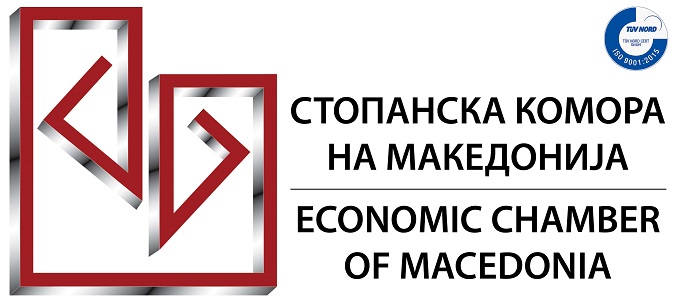


https://www.biznisregulativa.mk
Project title: Project of USAID-Partnership for Better Business Regulations
Project duration: October 2016 – September 2020
Lead Implementing Partner: EPI CENTAR International
e-mail: contact@epicentar.mk
mobile phone: +38970245798
phone: +389 2 3233 753
Implementing partners:
Economic Chamber of Macedonia;
ICT Chamber of Commerce – MASIT;
Economic Chamber of North-West Macedonia
Project Objectives:
• Objective 1: Micro and small businesses throughout Macedonia improve their compliance with legal requirements
• Objective 2. Business organizations engage in a constructive dialogue on streamlining of regulation
Short term impact:
• Improved capacities, both for in-house and external financial and legal advisors
• Improved information flow
Long term impact:
• Increased financial and legal compliance of the SMEs
• Streamlined business regulation as a result of private sector input
• Overall economic impact
Main business sectors: Agriculture; Textile; Construction; IT; Tourism
Project beneficiaries:
• Start-up companies
• Existing companies, identified and selected by the Implementing partners;
• 70% of the total number of beneficiaries included will be located out of Skopje, while the rest will be seated in the capital; Minimum of 30% women entrepreneurs covered
Project Activities:
A1: Voucher scheme, Info sessions, Training for in-house and external advisors
A2: Creation of a unique info space - Improved information flow
A3: Organizing forums for improving the awareness and compliance on legal and financial regulations
A4: Development and Dissemination of Compliance Check-list and “how-to” Procedure Guides & Brochures
A5: Improvement of the skills of the chamber’s staff and strengthening of their overall qualification related to legal compliance
A6: Establishing cooperation and insight of best practices from chambers from the EU
A7: Promotion of sustainable and independent platform for transferring the needs of the business community to the policy makers
A8: Development of advocacy and lobbing capacities of the Partner Chambers
A9: Development of Policy Briefs identified by targeted sector groups
A10: Promotion of ENER
Closed Projects
Association of Balkan Chambers - ABC
General Assembly of the Association of Balkan Chambers in Nicosia, Cyprus – REDUCTION OF THE PUBLIC CONSUMPTION AND CREATION OF AMBIENT FOR OPENING JOBS
General Assembly of the Association of Balkan Chambers, the 35th one, was held in Nicosia, Cyprus on March 16th, 2012. The host was the Cyprus Chamber of Commerce and Industry that this year is the Chairman of ABC. The Assembly was attended by representatives of Chambers from Greece, Macedonia, Serbia, Montenegro, Bosnia and Herzegovina, Bulgaria and Romania.
Speech of Mr.Branko Azeski, President of The Economic Chamber of Macedonia
INTERBALCANIC COOPERATION, CRUCIAL FACTOR ON EU INTEGRATION, THE ROLE OF CHAMBERS
This topic we constantly discuss and its importance is being numerous times absolved. Therefore, today, I will present concrete proposals for concrete activities, based on one segment of cooperation and that is the implementation of the Multi-beneficiary IPA Programme.
Declaration by The Association of the Balkan Chambers (ABC)
- GOAL - SUSTAINABLE, SELF-FINANSING AND PROFICIENT ASSOCIATION-
The Unions and/of Chambers of Commerce and Industry, members of the Association of Balkan Chambers, gathered in Istanbul on 26th March 2008, on the occasion of the General Assembly decided...

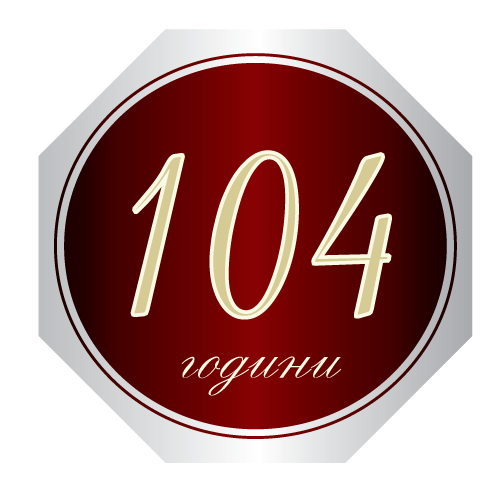

 Прогресив Академија
Прогресив Академија